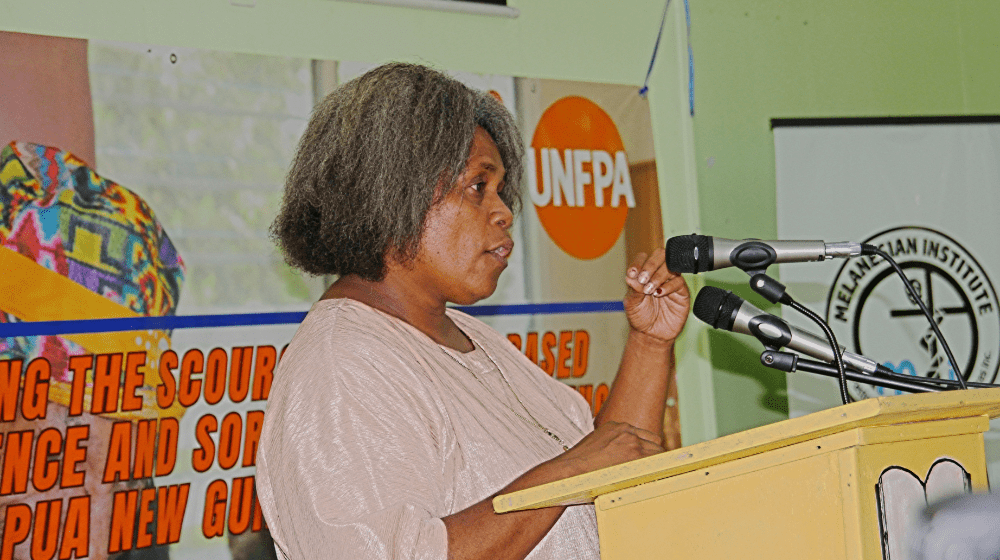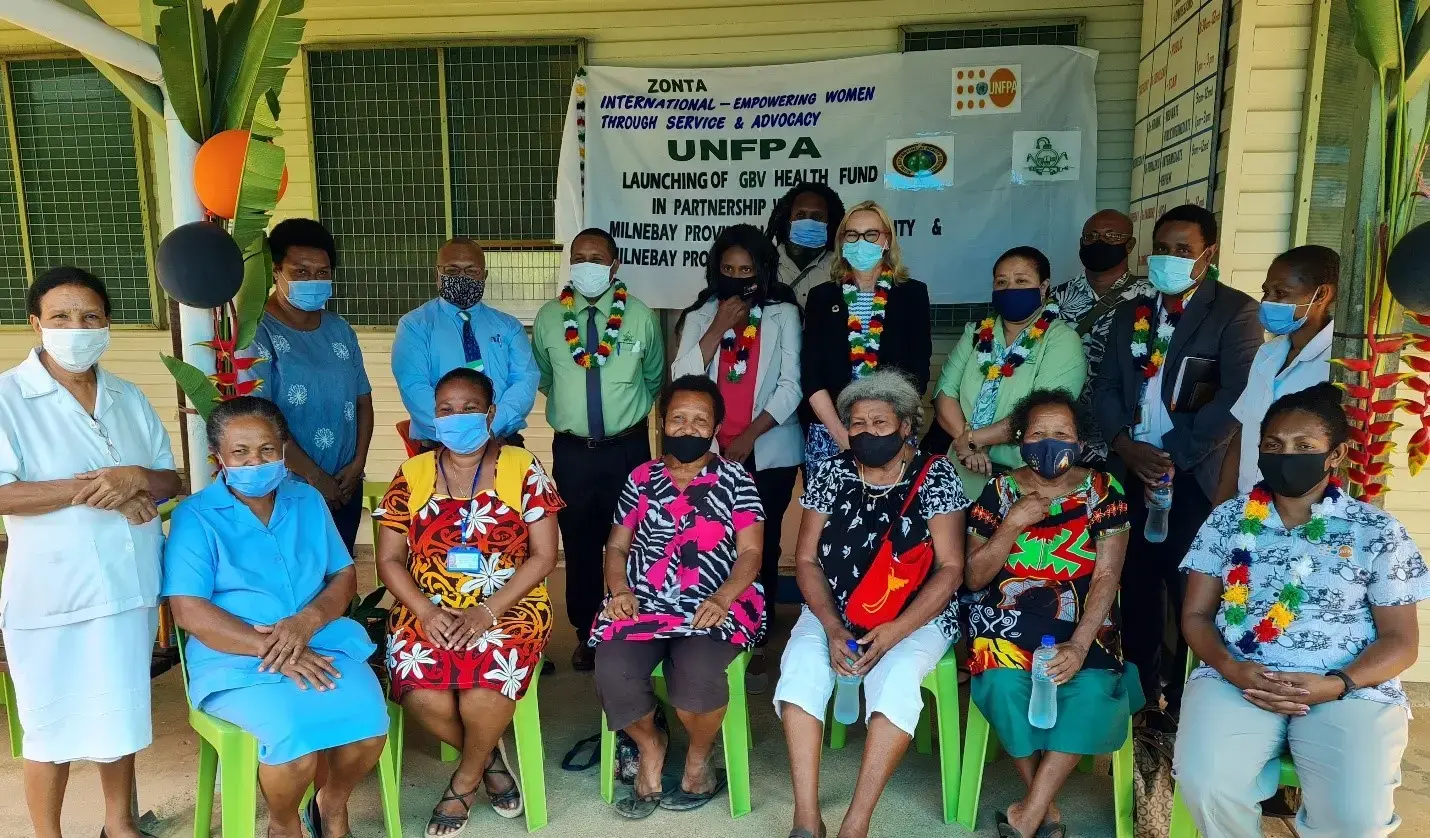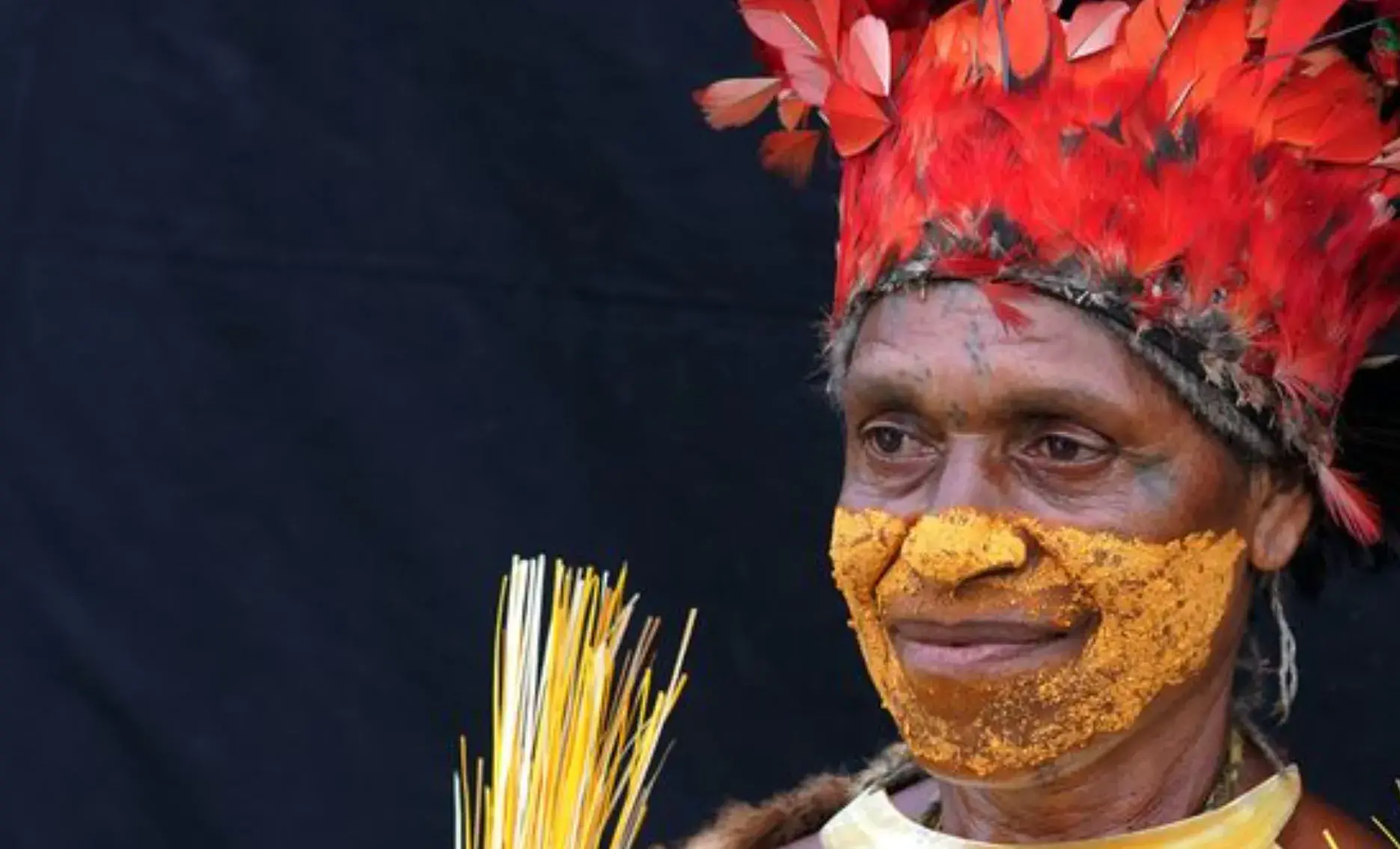On December 11, 2024, Goroka in Papua New Guinea’s Eastern Highlands Province became the hub of a landmark effort to address Sorcery Accusation-Related Violence (SARV), Gender-Based Violence (GBV), and Substance Abuse. More than 80 leaders from government, faith-based organisations, civil society groups, and grassroots advocates gathered at the Melanesian Institute for the inaugural Leadership Collaboration Meeting.
Supported by the United Nations Population Fund (UNFPA) and funded by the Korea International Cooperation Agency (KOICA), the event marked a critical step toward sustainable, community-driven solutions.
The meeting brought together a diverse range of stakeholders, emphasizing the need for a collaborative, multi-sectoral approach. Faith-based leaders, government officials, police representatives, and grassroots advocates shared insights on challenges and strategies to end SARV and its far-reaching impacts.
“We are losing control as sorcery accusations destroy lives and communities," said Bishop Rev. Justine Soongie of Wabag Diocese. "Village courts lack the knowledge and courage to intervene, leaving victims vulnerable to mob violence."
Br. Martin Tnines, Director of the Melanesian Institute, raised the importance of collective action. "Meaningful and sustainable progress demands collaboration," he said, thanking UNFPA and KOICA for their critical support.
Participants identified critical gaps that hinder efforts to address SARV, GBV, and Substance Abuse, including weak law enforcement, limited public awareness, and the influence of powerful local elites.
Josephine Pitmur, Deputy Secretary of the Department of Justice and Attorney General (DJAG), highlighted Section 299(A) of the Criminal Code, which mandates life imprisonment for killings linked to sorcery accusations: "Successful prosecutions depend on strong evidence and community cooperation," she noted, urging greater awareness and accountability.
Chief Sergeant Alois Dame, Rural Police Commander, Gumine District called attention to inadequate resources for law enforcement: "Without logistical support, frontline workers cannot effectively protect victims or hold perpetrators accountable," he said. He advocated for stronger legal protection for human rights defenders.
A major achievement of the meeting was the review of the SARV curriculum developed by Divine Word University. Participants provided feedback to enhance this educational tool, aimed at preventing SARV through community awareness and capacity-building. The curriculum is set to be launched in 2025, offering a transformative resource to empower communities.
The meeting concluded with leaders pledging to strengthen community resilience, advocate for stronger enforcement of laws, and promote education to address the root causes of violence.
“This leadership meeting to address sorcery accusation-related violence and gender-based violence is more than just a conversation—it is a commitment to action," said Br. Martin Tnines. "Together, we can build a future free from fear and violence."




